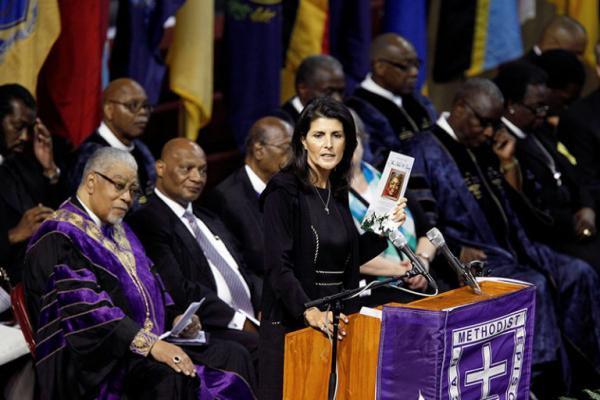Jan 18, 2017
Republican South Carolina Gov. Nikki Haley will be a rare woman on Donald Trump’s Cabinet-level team, and one of the few persons of color.
Knowing little about her foreign policy positions, given that she has little to no international experience, what should we expect from Haley once she is confirmed to be ambassador to the United Nations?
Read the Full Article

Already a subscriber? Login
